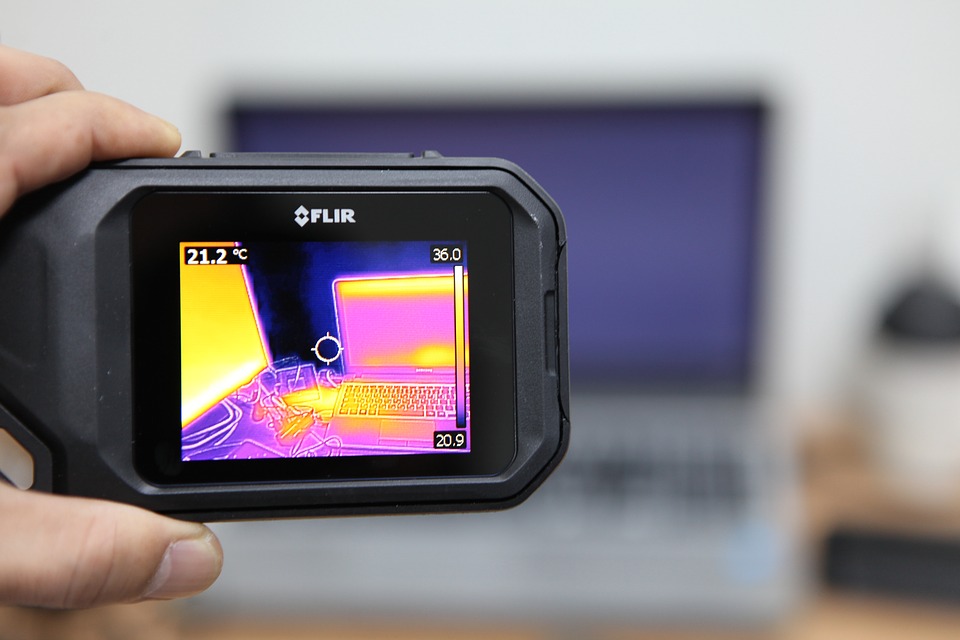Thermal Imaging is one of the very best tools a home inspector can use. Find out why below.
Professional home inspectors will typically make good use of very helpful technology. One of the best technologies that can be used is called thermal imaging. An infrared camera is used to detect infrared energy emanating from an object. It then displays that information in a recognizable image. That all sounds very impressive, but ultimately, the pictures just show you where stuff is hot or cold.
If thermal imaging is ultimately that simple, is it really that useful in a home inspection? Yes! The value of this technology is not so much in the image itself. But it’s in the professional interpretation of that image. A trained and certified home inspector can combine his years of experience dealing with issues common to homeowners with the image. These images can help a qualified home inspector where things may wet, potential electrical issues, missing insulation and more. This image and a professional interpretation of that image can help you understand exactly what’s going on beneath the surface of your home. We know what we’re looking at in the camera. But more importantly, we know what it means for you as a homeowner.
Over the years, infrared images have helped us to locate numerous deficiencies that would have otherwise went unnoticed. From leaking toilets in freshly painted flipped homes, to leaks in water supply lines under a slab foundation, to leaks at windows running down the interior of the walls, missing insulation in walls around the home to overheated electrical circuits which can pose as fire hazards.
As home inspectors, we want to provide you with the best home inspection possible. Point Man Home Inspection feels that thermal imaging is the cap stone of quality home inspections. It’s saved our clients thousands over the years, thousands that would have otherwise come out of their pockets after the issues got worse and began to show visible signs. That’s why we include thermal imaging scans with every home inspection we conduct.


Recent Comments